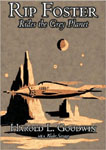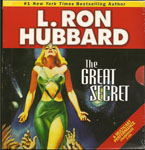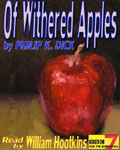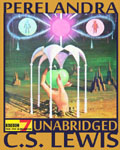
 The Sky People
The Sky People
By S.M. Stirling; Read by Todd McLaren
1 MP3-CD or 9 CDs – Approx. 10.5 Hrs [UNABRIDGED]
Publisher: Tantor Audio
Published: 2006
ISBN: 140015345X (MP3-CD), 9781400103454 (CDs)
Themes: / Science Fiction / Alternate History / Adventure / Venus / Dinosaurs / Neanderthals / Airships / Cold War / Pulp /
CRACK!
He swayed back against the recoil and worked the bolt with a quick flick of his first three fingers. A body exploded out of the patch of tall grass he’d aimed at. It was a biped, about his own size and covered in yellow-green feathers except for a crest of crimson plumes that snapped out in reflex as the lizard body writhed in death. The jump put it a good twelve feet into the air; a good deal of its length was the powerful digitigrade legs, both with a great sickle-shaped claw held up against the hock. That flashed out in equally automatic reflex as the vicious predator struck out in one last attempt to disembowel whatever had hurt it. A steam-engine hiss escaped the long fanged mouth, scarlet-purple within, and a spray of blood came with it from the lungs shredded by the powerful expanding bullet.
“Raptor pack!” Marc shouted to the herdsman.
The Sky People fits into that alternate history sub-genre of SF but not in the usual way. Generally, alternate history tales follow the events of the real world with one event changed in the past that creates a different outcome and changes history from that point forward. This may be the South winning the Civil War or Mary, Queen of Scots, becoming the Queen of England. The departing point for this novel took place approximately 200 million years ago. But it didn’t occur so much on our own planet but on Venus and Mars. This means this alternate Earth’s history doesn’t change until the U.S. and Soviet Union start exploring interplanetary space.
The prologue features the landing of an American rocket ship on Venus in 1962. The planet’s surface appears as a lush jungle – then running into view of the film camera is an exotic and beautiful scantily fur-clad female with her clan’s people.
The novel proper then begins 22 years later in 1988. The Cold War has changed from an arms race into a competitive interplanetary space race to explore and stake their claims on Venus and Mars. Marc Vitrac, a citizen of Jamestown, the U.S.-Commonwealth scientific colony, welcomes the newly arrived rocket passengers. Their mode of transportation from the landing site to Jamestown is on the back of dinosaurs through the jungle lushness of Venus.
Meanwhile, on the nearby Venusian continent, the Soviet bloc has set up their own scientific outpost. When one of their shuttle crash lands in the relative vicinity of Jamestown, a rescue party is put together to search for survivors. They travel via airship, and it does not fair well against the natural hostile environment. What’s more, there is a saboteur among the blimp’s crew.
The story grows more intriguing as Marc Vitrac and the stranded party of the airship meet with a clan of primitive humans. The two parties join forces to face off against a tribe of armed Neanderthals!
As you might imagine, this novel reads as a love letter to the early pulp master, Edgar Rice Burroughs. But it’s no mere pastiche of the creator of Tarzan, John Carter of Mars, and most pertinently, Carson of Venus. Stirling uses hard science justifications for his world building. And there’s also more of an emphasis on cultural diversity that you’d expect from a novel written in the 21st century. Sterling is a capable writer, whether it is a turning of a phrase or a description of lush imagery, he’s able to handle it all without getting too far from the gloriously pulpy action. Burroughs is often mentioned in the book as being a major influence on the many of the denizens of the scientific colony.
What exactly happened those 200 million years ago isn’t exactly clear. Why is the planet’s evolution so closely tied to that of Earth’s? The reigning hypothesis in The Sky People is that aliens seeded the planets nearest Earth. There are mysteries here that are to be answered over the length of the trilogy.
Todd McLaren handles the dialects deftly without overemphasizing the accents. Some novels are well-suited to be adapted to audiobook, as if they were written for that treatment. The Sky People is one of these, it makes an ideal audiobook. The large ranch of characters with multi-cultural backgrounds enables Todd McLaren to apply his talent for dialect and keeping the listening experience fresh and varied. Sterling also writes with sounds effects—meaning, he literally writes “Unnnngg-OOOK!” for a bellowing dinosaur, so it’s like the story has the sound effects built in, which McLaren gets to vocalize.
The Sky People is a rare pleasure—well-written, thrill-ride excitement, fun characters, lush settings, and all wrapped-up in a wonderful vocal performance. This is the first novel in a projected trilogy. I sincerely hope that Tantor Audio, with the talents of Todd McLaren, publishes the complete series.
posted by The Time Traveler of the Time Traveler Show

 J.J. Campanella writes in to say:
J.J. Campanella writes in to say: Rip Foster Rides The Grey Planet
Rip Foster Rides The Grey Planet







